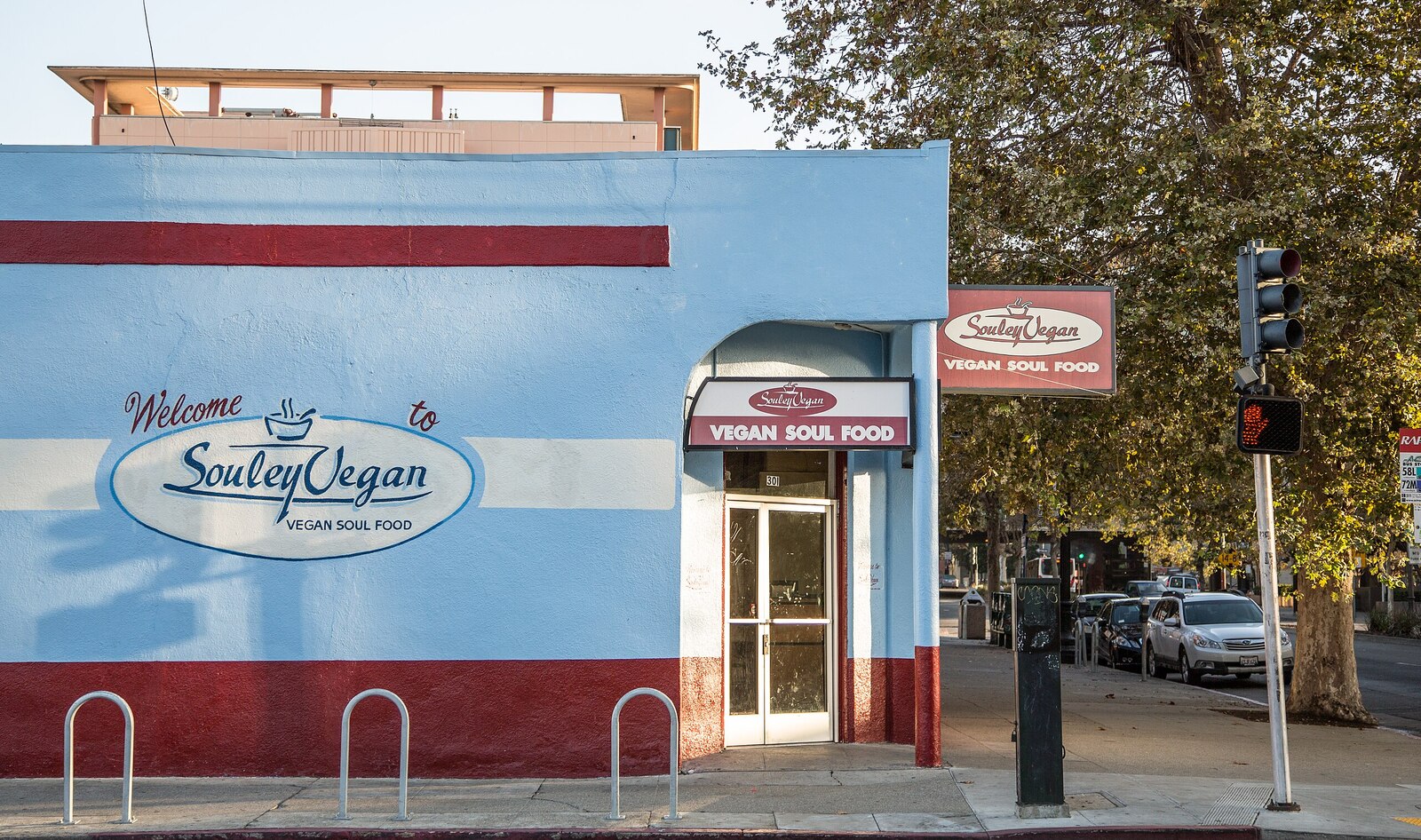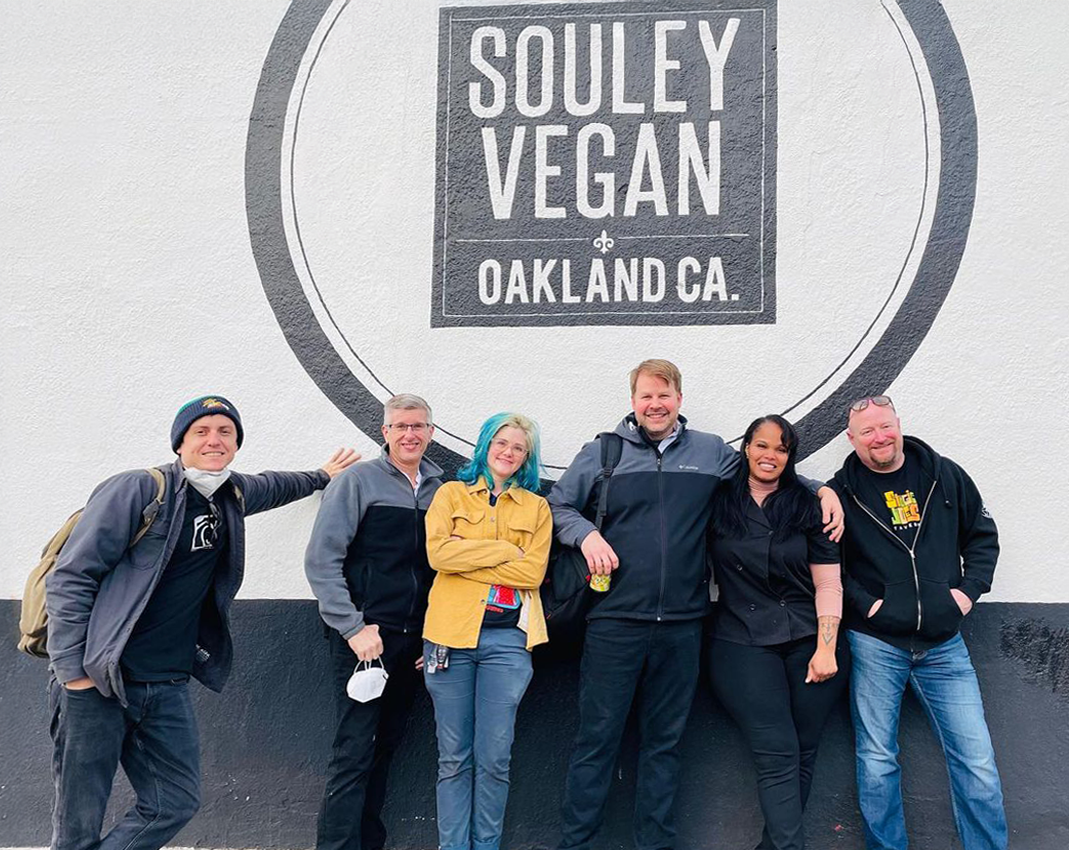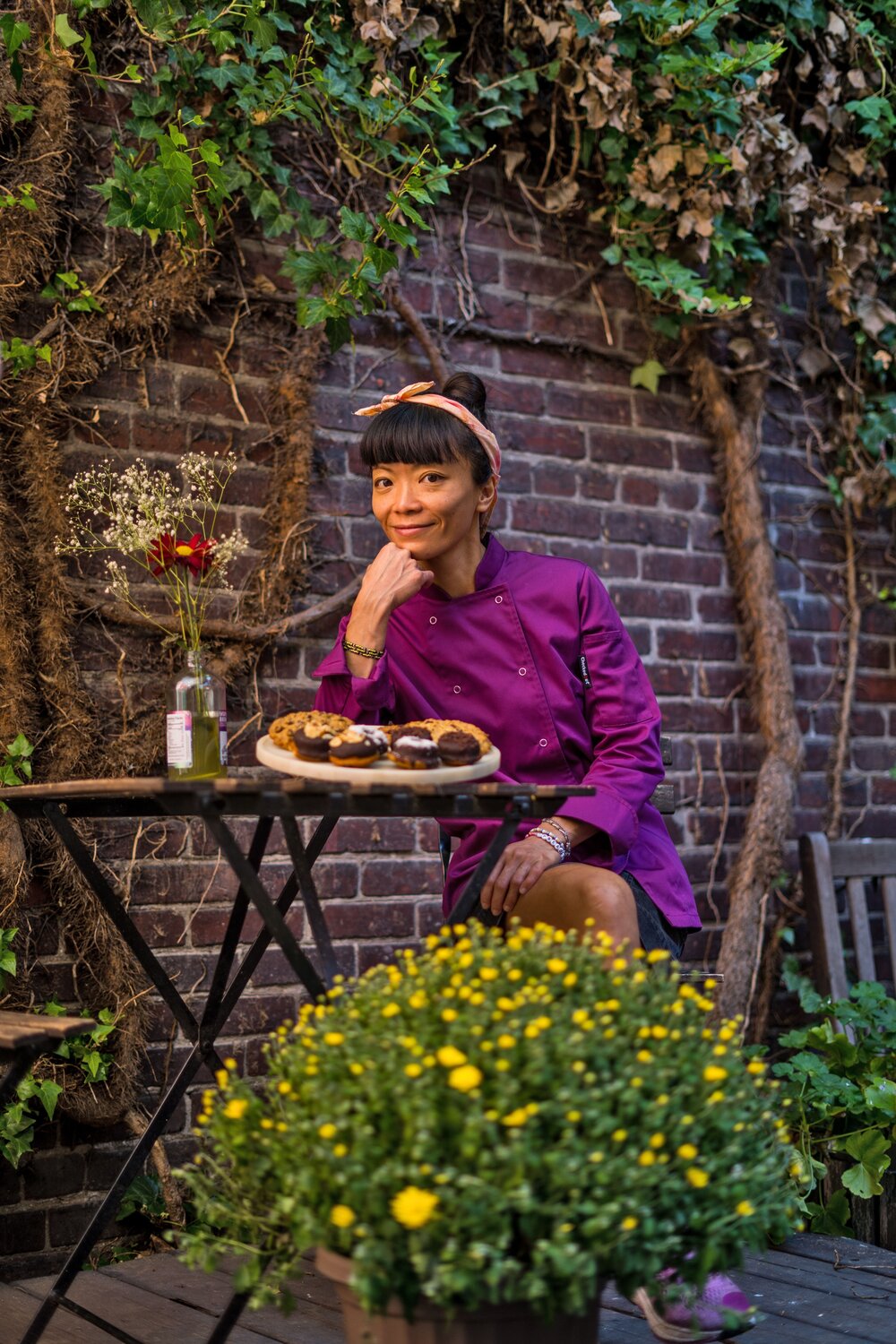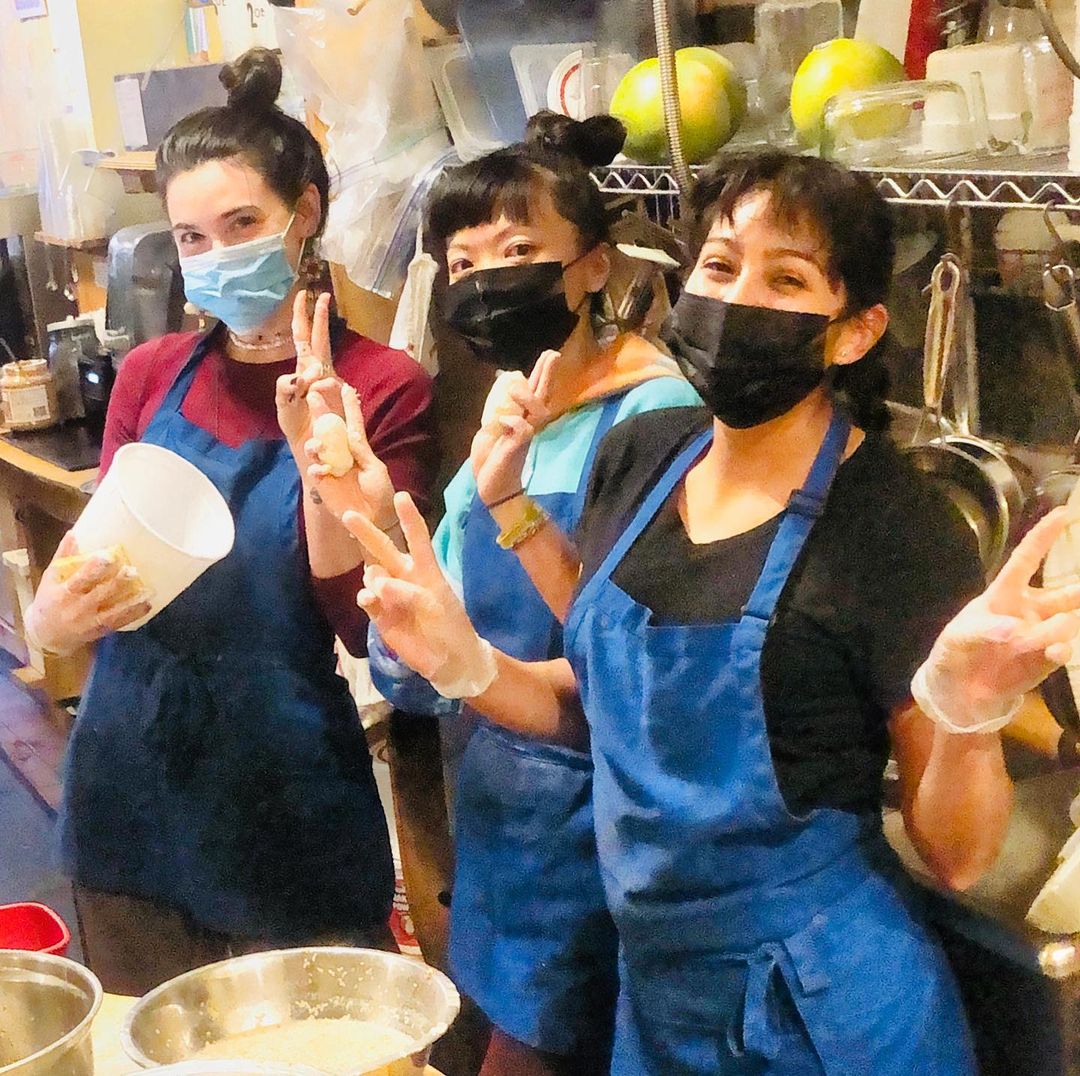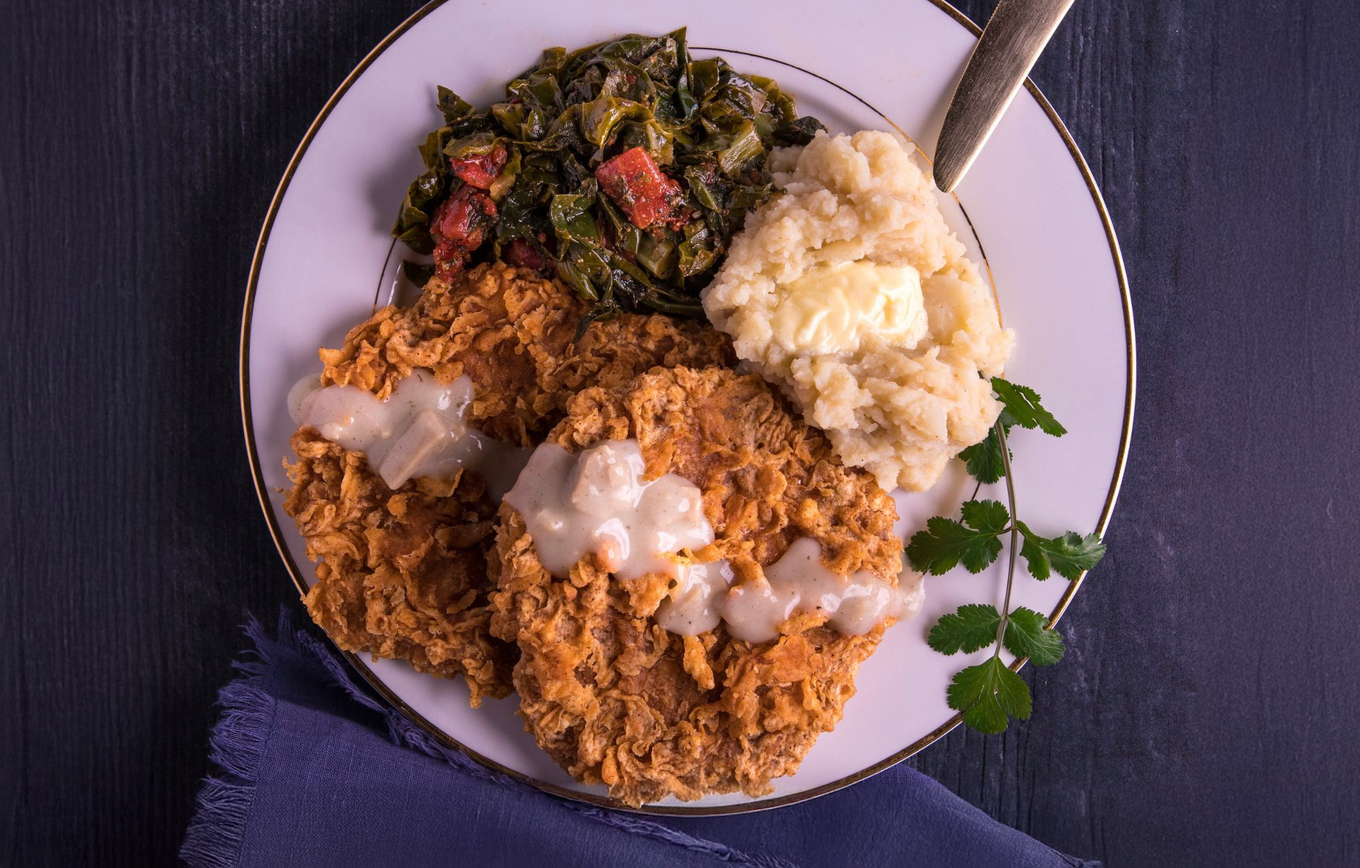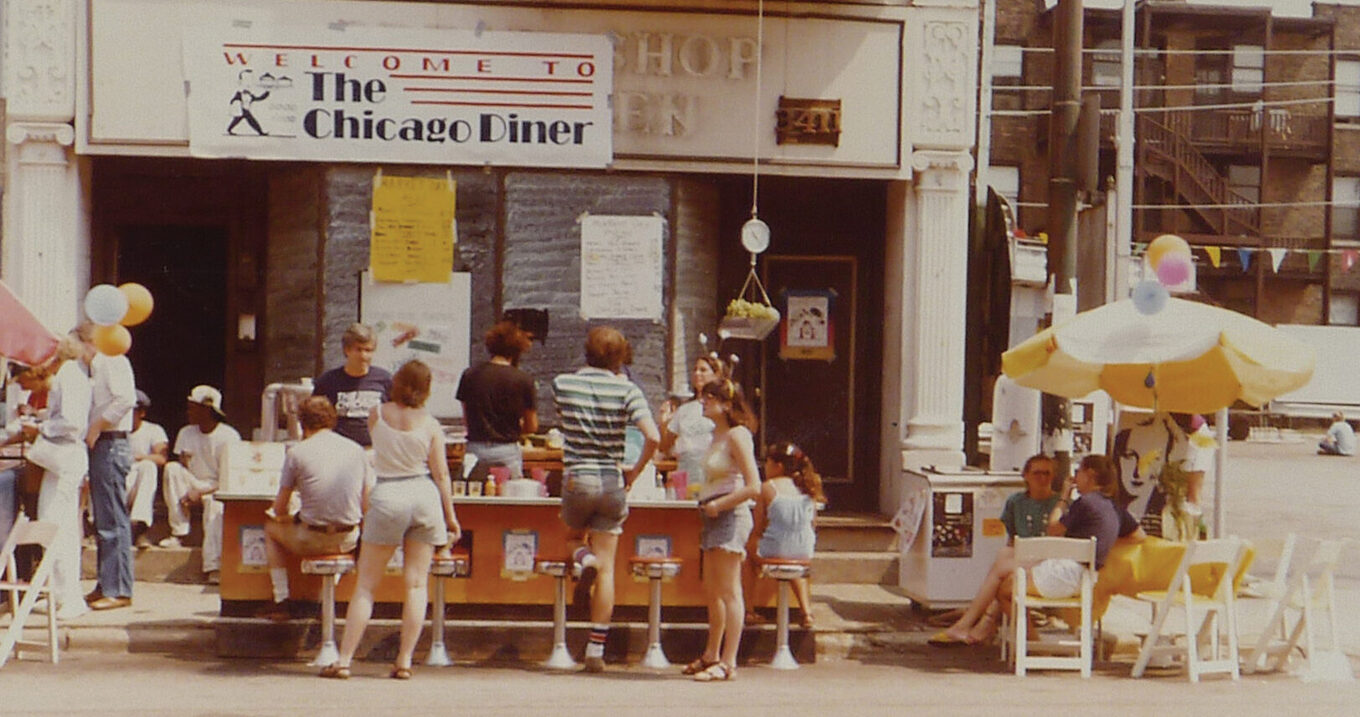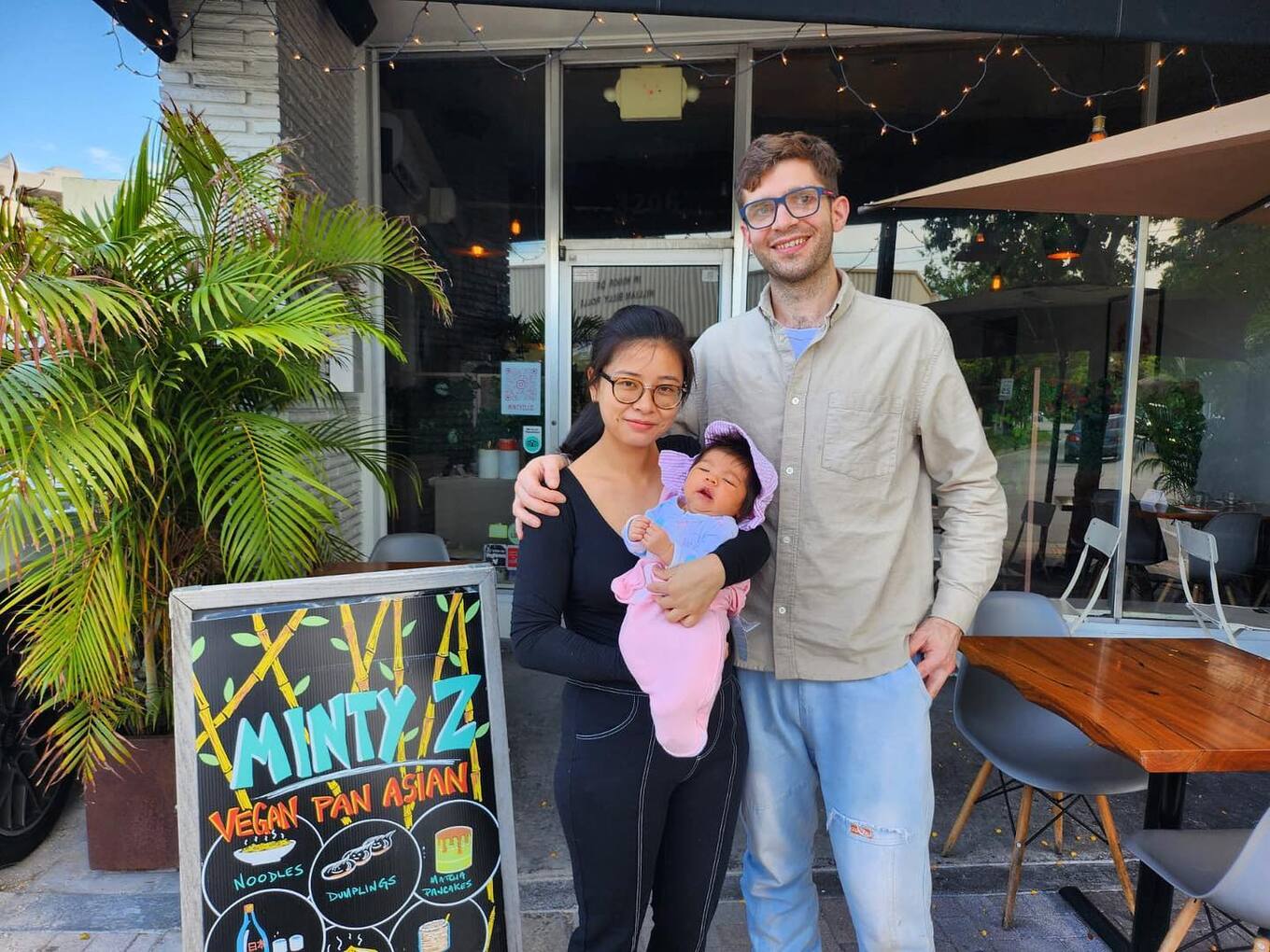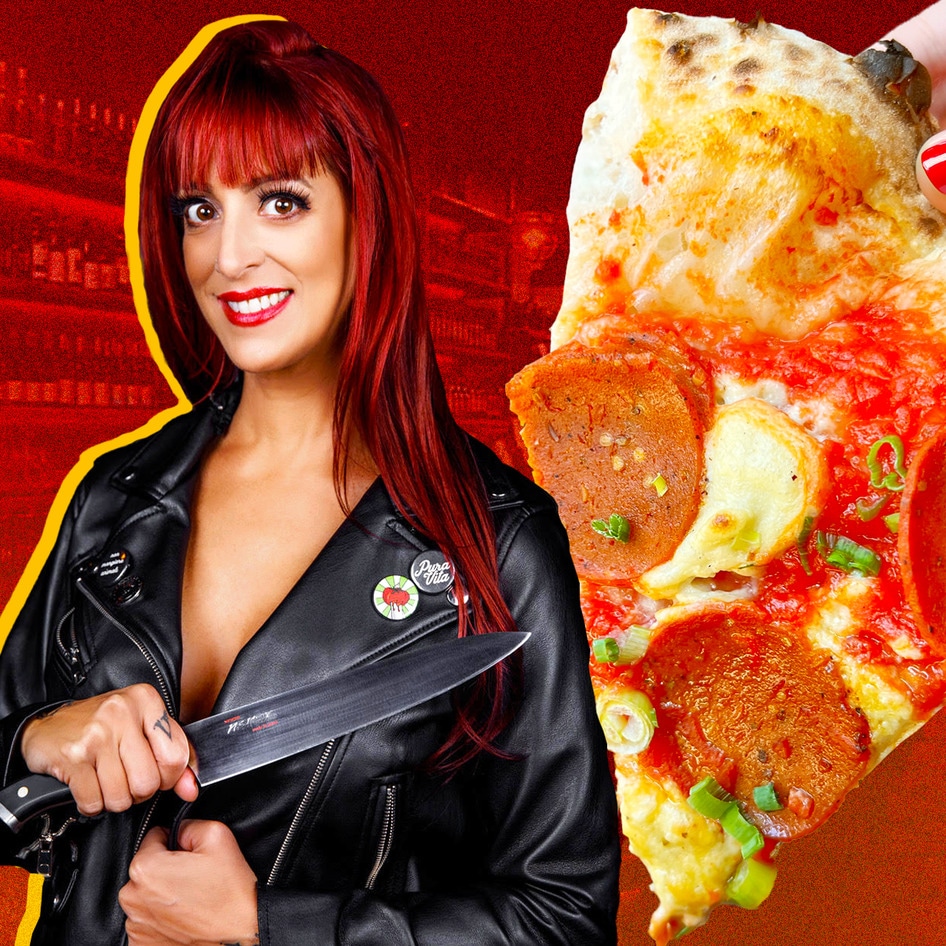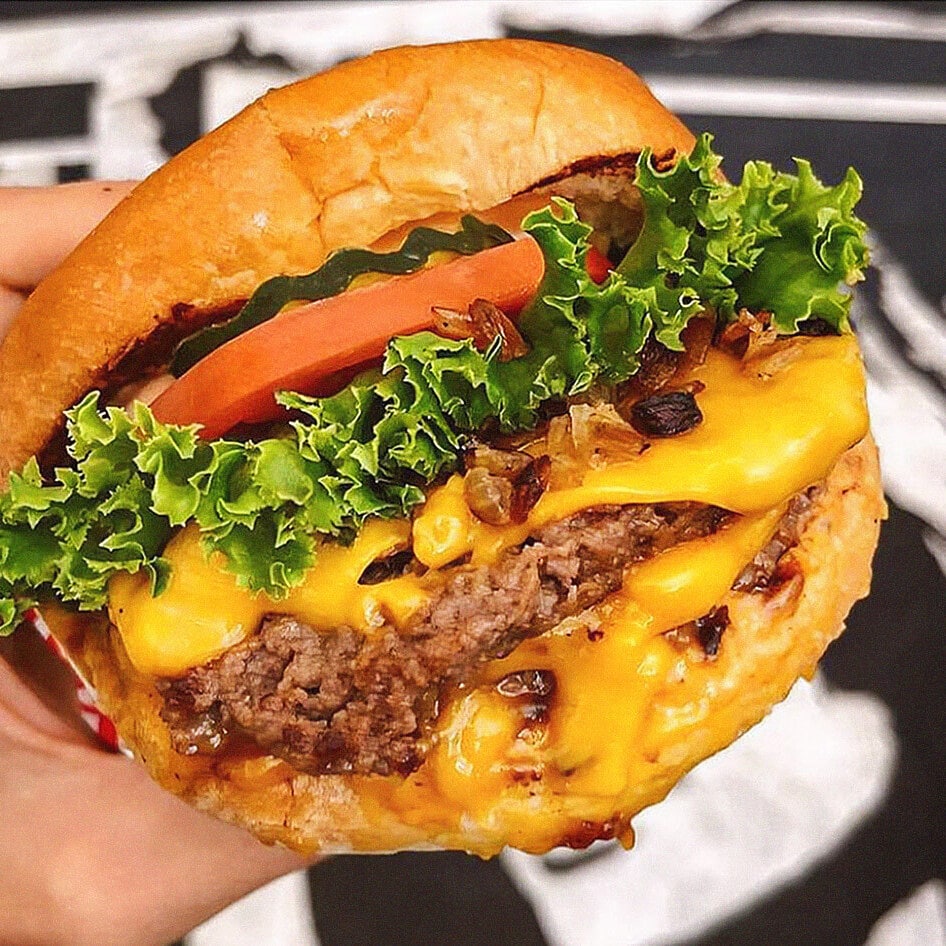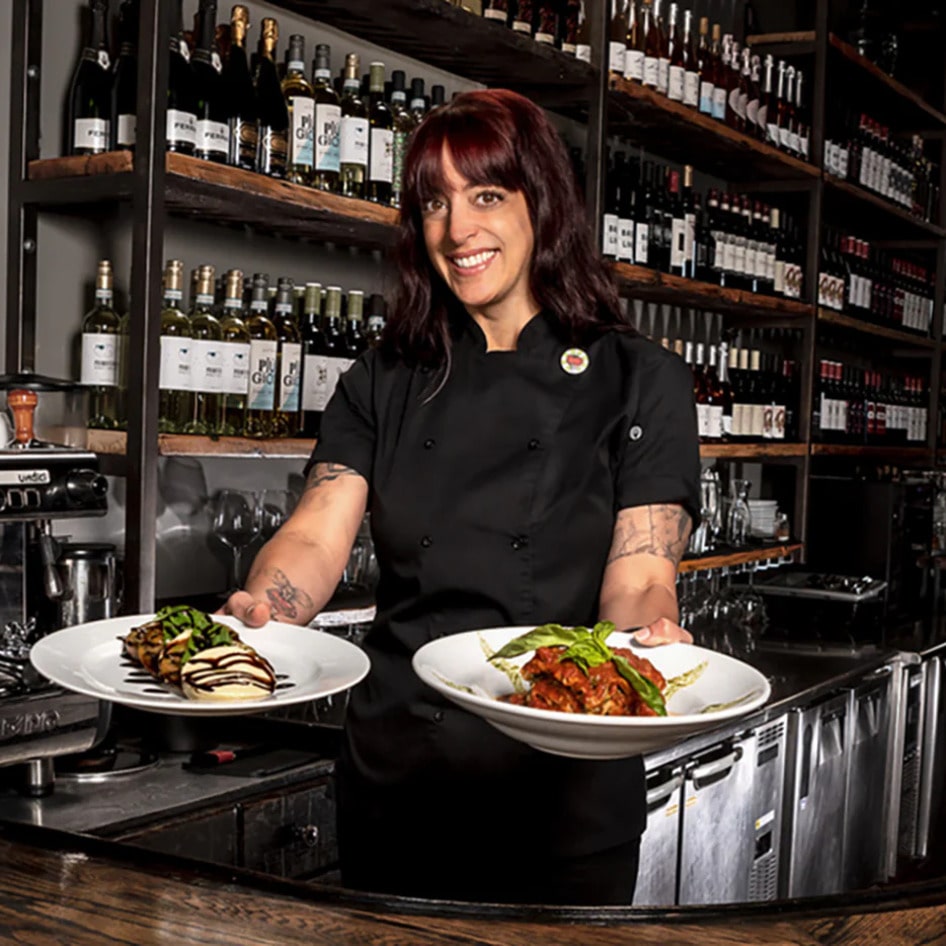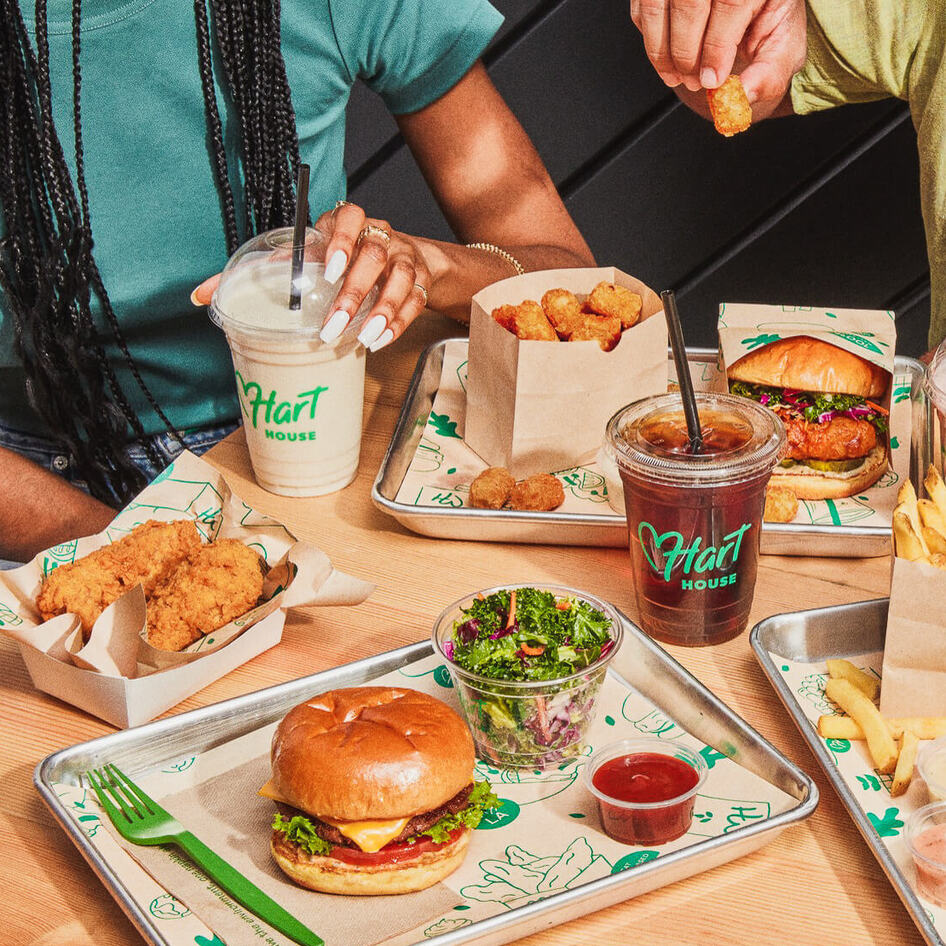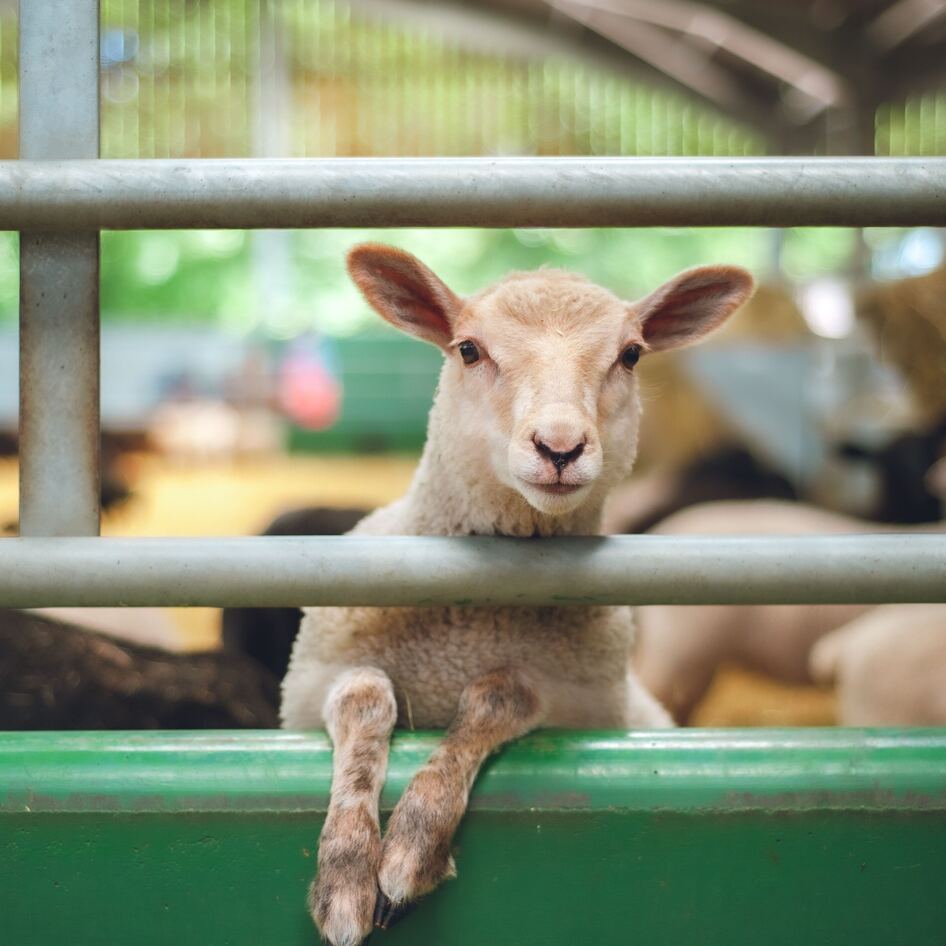Nic’s on Beverly—closed. Plant Food + Wine—shuttered. Flore—done. Jewel—finished. Hart House—gone. And that’s just Los Angeles.
Across the country, other notable vegan restaurant closings include Charlotte-area favorite Fern, Flavors From The Garden, now history after 14 years in business; Portland’s Blossoming Lotus, closed after 20 years in the Pacific Northwest; The Organic Grill, the East Village’s pioneer vegan organic restaurant closed shop after over 25 years in business; and Boston-area’s The Grasshopper—went out of business after 30 years. Even the McPlant, McDonald’s vegan burger option, is off the menu due to sluggish sales.
The National Restaurant Association says more than 90,000 US restaurants closed as a result of pandemic fallout. Not all of them were vegan, obviously, but when zooming in on the effect the last few years have had on restaurants, the results are sobering. According to data from vegetarian restaurant guide HappyCow, New York has seen the most closures, going from 173 vegan restaurants in 2022 to 132 today. Portland, OR went from 61 to 46 during the same time frame, while Los Angeles dropped from 61 to 48—a 21-percent decrease.
These closings reflect a trend, and the US no longer leads the world in vegan-friendly cities. Once global destinations for meat-free dining, Portland and Los Angeles now trail London, Berlin, Barcelona, and Amsterdam. What happened?
HappyCow’s founder Eric Brent cites the usual suspects impacting the entire food and beverage industry—high rents, increasing food costs, low profit margins, pandemic-related challenges such as staffing and supply chain issues, and a sharp decline in guests. And while there’s no definitive data on how many plant-based restaurants have shuttered as a result of the pandemic, Brent puts it this way:
“2023 was devastating for vegan restaurants.”
How vegan restaurateurs are dealing
“Heartbreaking” is the word Tamearra Dyson uses. The Souley Vegan owner-chef had opened her Oakland restaurant in 2009 with little money, no investors, no loans, and no prior restaurant experience—“just a work ethic, and the belief I had something to offer the world,” she says. But once word got out about Souley Vegan’s plant-based Creole menu, it became destination dining, with people flocking from all corners of the country for the hot links and fun vibe. “Saturday nights, we had people spilling out of our location,” Dyson recalls, wistful. But one Saturday in 2020, right before California’s COVID lockdown, “by 8pm, it was crickets. I knew things were about to go very wrong.”
Like most other restaurants, Souley Vegan made a pandemic pivot, doing a quick switch to takeout only. But as COVID continued, Oakland crime surged. The restaurant was robbed again and again. Even with hired security, Dyson couldn’t guarantee safety for staff or for guests. Folks had their cars broken into while they were inside eating. They stopped showing up, not willing to risk vandalism and theft. With financial woes mounting, Dyson—the chef who won Beat Bobby Flay—realized she had been beaten. She took a deep breath and decided to close Souley Vegan.
Burgerlords’ turn to veganism turns sour
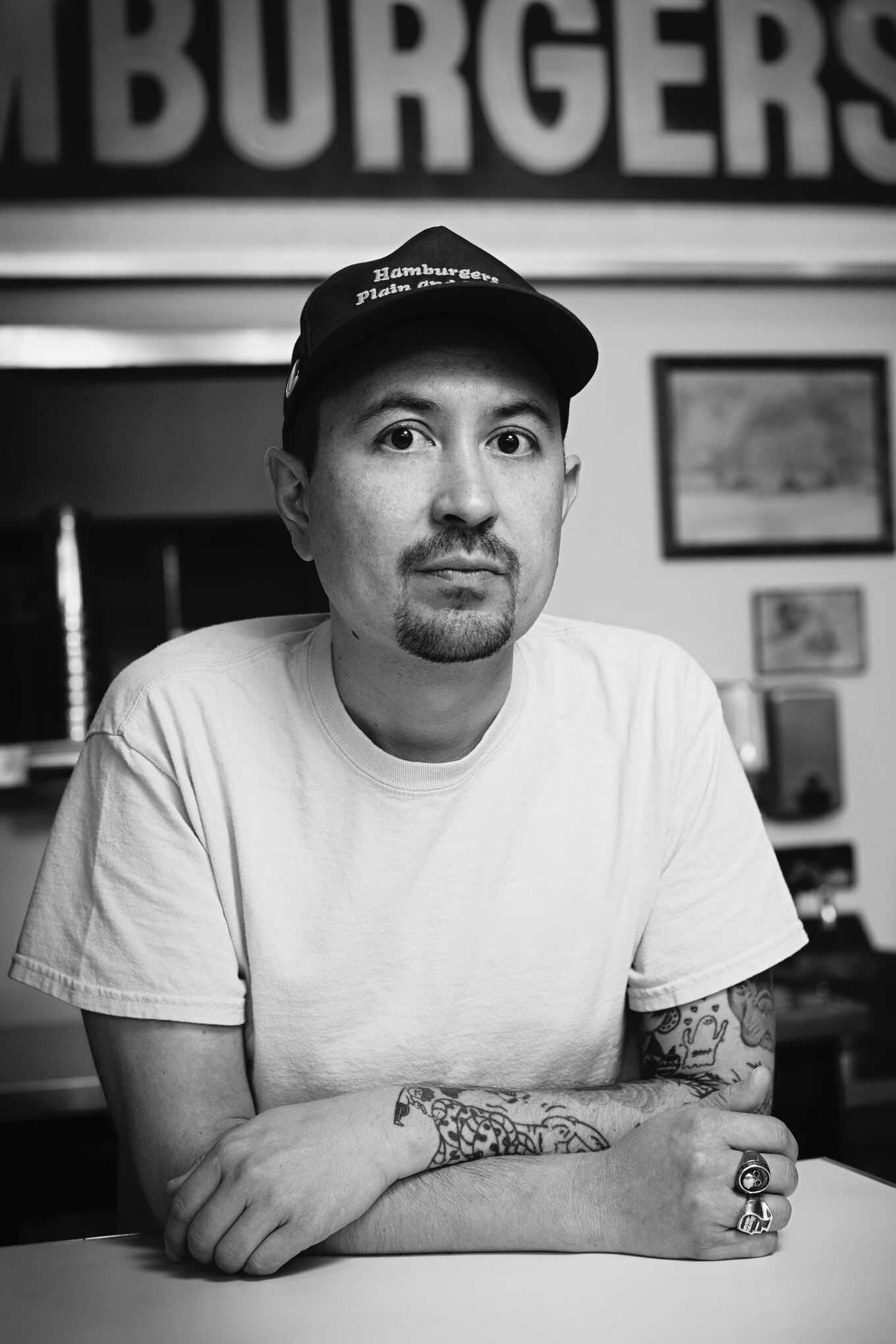 Frederick Guerrero
Frederick Guerrero
Unlike Dyson, Frederick Guerrero comes from a restaurant family. He knows running a restaurant has always been a high-wire act, even without the impacts of COVID and a down economy. Hulu’s hit show The Bear is only a click or two more extreme than reality—mental health issues, plumbing disasters, AWOL product delivery, and rapid staff turnover is just an average day.
Guerrero grew up working in his father’s Los Angeles burger restaurant, The Oinkster. The name says it all—not vegan. So one may be surprised that Guerrero and his brother Max have been meat-free for most of their lives. When they opened the cheekily-named Burgerlords in 2015, they wanted to show the power of plant-based. They took the standard burger joint approach—a menu filled with different iterations of beef burgers plus one half-hearted veggie burger option—and flipped it. Burgerlords offered a dazzling array of burgers made with housemade vegan patties crafted daily from a proprietary recipe comprising close to three dozen whole foods … and one lone beef burger for those who wanted it.
Five years later when the pandemic struck and turned the world upside down, the Guerrero brothers saw an opportunity to be bold. They revamped Burgerlords, making it totally vegan. They added fun new menu items like a Buffalo ranch tofu burger, plant-based nuggets, and a slew of rotating vegan specials, everything made in-house. The first three days, they sold out of everything. And then they didn’t.
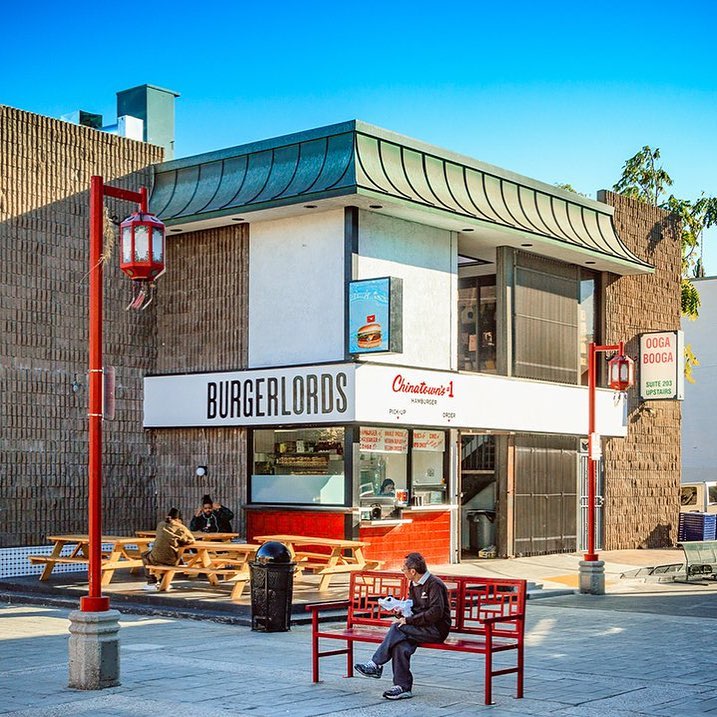 Burgerlords
Burgerlords
Sales took a nosedive and stayed that way—for three years. A vegan Burgerlords reflected Guerrero’s ethos, “but we lost a lot of customers. It wasn’t the restaurant they enjoyed pre-COVID. We went from thriving to hanging on by a thread.”
Like Dyson, Guerrero made a tough choice. But rather than closing Burgerlords, he reluctantly put meat back on the menu.
So did Mollie Engelhart of Sage in Los Angeles. This spring, Engelhart made national headlines when she transformed the nationally acclaimed Sage Vegan Bistro into Sage Regenerative Kitchen and Brewery—an omnivorous restaurant wholeheartedly celebrating regenerative farming and featuring menu items like Wild Boar Pepperoni Pizza and Pasture-Raised Shredded Chicken Tacos.
Guerrero questioned her choice and how she presented it, but his heart goes out to her for the backlash she received from the vegan community—he remembers getting it, too. “A so-called compassionate group of people turned nasty real fast,” he says. “People were telling me to go kill myself.
“This is an independent business. It’s my livelihood. It’s not like someone’s going to bail me out—it’s just me. If this fails, I go work at McDonalds.”
But things never turned around, and this spring, instead of closing and heading to the Golden Arches, he sold Burgerlords, negotiating so that most longtime staff could continue under the new ownership. Today, it’s a high-end version of a traditional burger joint featuring $25 grass-fed smashburger combos and beef tallow fries, but Guerrero’s quick to point out the new business offers a housemade vegan patty as good as Burgerlords’ original. Almost.
One Philly restaurateur loses business, finds Joy
It’s been an era of rapid change for the restaurant industry, but for Philadelphia’s Alice Leung, it’s also been an opportunity for hopeful refresh. The vegan chef and perpetually cheerful dynamo was spurred by the events of the past few years to rebrand Soy Cafe, her 20-year-old Philly eatery. It stayed vegan, with the majority of the menu gluten-free as well, but now it has a perhaps wider-name appeal in “Joy Cafe.” “Bringing a little joy to every patron has always been the mission,” Leung says.
Joy Cafe seats 30, and serves an all-day menu with bubble waffles, chickpea-flax omelettes, and, of course, Philly cheesesteak wraps. “It started as a passion project. At some points, it was more profitable. At other points, not.” Leung shrugs.“I try to balance it out.”
COVID was one of those not profitable points—the pandemic hit Philadelphia hard. “The city shut down,” Leung says, but Joy Cafe never did. Despite rent issues and customer decline, “we were open every day,” even the days when “we” meant Leung alone. But as a first-generation immigrant from Hong Kong, Leung isn’t looking for praise. Her family instilled in her the sense, “We do what we have to do and not talk about it.” Those first crazy pandemic days, rather than let café inventory go to waste, she made meals and donated them to the city’s first responders and hospital workers. “They were putting their lives on the line. They needed to be fed,” Leung says.
“We lost a bunch of money, but it felt better than anything I’ve ever done.”
Clearly, Joy Cafe is more than cheesesteaks. It’s a community pillar, a resource. As the pandemic continued, the café began partnering with nonprofits, supplying free meals to people in need. “That gave me a new surge of energy. Everyone still needs to eat healthy.”
Leung reached out to her small staff and invited those who were comfortable to come back to work. The restaurant transitioned to takeout only, with Leung adding little hand-written messages to each order to thank the guests and encourage them to stay positive. “I felt like anything to help the community feel a sense of normalcy, or even a little bit of joy, would make me feel happy, too.”
Happiness and joy are endearing qualities, but they don’t pay the bills. Just ask Vlad Grinberg, owner of now-shuttered New York City institution The Organic Grill. Like Joy Cafe, Organic Grill served more than just organic, made-from-scratch vegan meals; it served the community, offering live music, comedy nights, and a welcoming place for groups to meet.
But New York became a ghost town during the pandemic. Guests were barely trickling in, and overhead was such that after 20 years, the restaurant was forced to move from the East Village to a new location—and never recovered its customer base. As with Souley Vegan, it became plagued by crime. Grinberg tried everything—reaching out to regulars, sending press releases to generate interest in the new location, and crowdfunding. But it just wasn’t enough.
Closing his long-standing café was so painful that Grinberg asked not to be quoted for this story. He wishes, though, that The Organic Grill had received attention for all the years it was thriving and feeding people the organic, plant-based food he was so proud to serve.
Souley Vegan’s second life
We find ourselves in the most challenging time ever for restaurant owners, but this is a tough business, which means business owners need to be tougher. Enter Dyson and Souley Vegan 2.0.
The new iteration of the soul food staple is in Martinez, CA, where Dyson was born, about 25 miles from the original Oakland location. It’s the first licensed Souley Vegan, the start of Dyson’s plan to franchise.
“This is just the beginning. I know Souley Vegan has life. It’s an opportunity to come back and be better.”
The trick, she says, is getting the balance right between “giving the community what they love and then scale it so it works—so we don’t lose momentum and stay financially sustainable.”
The Chicago Diner shows what can happen when you get the balance right. The city’s landmark meat-free diner was founded more than 40 years ago, so far back that when owner Mickey Hornick opened the eatery, the idea of a meatless restaurant in meat-loving Chicago seemed like a good way to lose money.
But Hornick hit on a winning formula—a retro diner vibe and diner menu, with comfort classics gone vegan, like creamy spinach artichoke dip, the diner’s housemade “Radical Reuben” (which has become so famous that it’s trademarked), and massive breakfast bowls with hash browns, seitan bacon, and scrambled tofu or eggs. Eggs? Michael Hornick, Mickey Hornick’s nephew and the diner’s president, understands the confusion. “We got a lot of people pushing for us to get rid of the dairy and eggs,” he says. “But I’d rather sell a meal that doesn’t have meat than not sell to that person.”
While Chicago Diner’s menu is overwhelmingly vegan, it’s always been inclusive. Over the decades, it’s earned them long-term guest loyalty, but that didn’t make them bulletproof. Once the pandemic hit, people fled Chicago in droves. “It was painful,” says Hornick, especially since Chicago Diner employed a staff of 90 people—”people who felt more like family. I have responsibilities to them. I feel like their protector.”
He met with his staff and said, “Let’s stay open. My goal is to keep as many people working as I can.” Thanks to moving quickly to secure a government PPP loan, Hornick was able to keep the diner going and pay employees above minimum wage. His prior leadership experience with Darden—the parent company of corporate restaurants including Olive Garden and Seasons 52—helped too, as did his upbeat attitude. Despite the diner’s struggle during the pandemic, “It allowed me to say ‘why am I doing this?’ It’s about more than the Radical Reuben. It’s about the people, 100 percent.”
“A meal is so much more than food on a fork. We get to be artists in the kitchen, creative with our space. Most of all, we get to welcome people, create experiences, and make sure someone’s getting something inside our restaurant that they don’t get anywhere else.”
The state of vegan restaurants
So what do you want from a vegan restaurant? For it to be a community beacon or a successful business? It was once possible to be both. The early days of vegan growth saw little in the way of local competition. Take Miami. Longtime local vegans once gratefully drove half an hour or more to support a plant-based restaurant. It didn’t have to be fabulous—and often it wasn’t—but it was vegan. Now there are three amazingly good vegan restaurants within a 10-minute drive from my house. Can being an oasis of vegan and vegan-friendly eateries be too much of a good thing? From a business standpoint, absolutely. Miami’s Minty Z has learned this the hard way.
The vegan dim sum shop opened in 2020, during the height of the pandemic. Despite the timing, Minty Z did well—so well, that last year, wife and husband team Huimin “Minty” Zhu and Alex Falco opened a second location in midtown Miami. The restaurant doubled its overhead—two restaurants and two sets of staff—but the clientele split in half. Some went north to midtown, others south to the Grove. Sadly, the midtown location closed six months after opening.
Adding insult to injury, two blocks from Minty Z is another vegan Asian restaurant—one that’s part of a franchise with a grander scale and deeper pockets. From Half-Price Mondays to Bottomless Brunch Sundays, Minty Z worked to keep her restaurant alive amidst the competition and downturned economy. But by the end of summer, it was over. “It’s been our passion,” said Zhu. “But we’re not making money.”
So how does Leung keep Joy Cafe solvent? “I’m not a numbers-first person,” she admits. She’s a person who knows how to make more from less. “I reuse, recycle, I use every part of the vegetable. I’ve been purchasing less from other places and making it myself more. It’s more labor on my end, but more health-forward. And more love, too.”
For Leung—and all restaurateurs right now—it wouldn’t hurt to get some love back.
“I understand you can’t come every week—food is expensive,” says Zhu. “But come when you can, tell people. Tell your friends.”
Guerrero takes it a step further. “You can’t sit on the sidelines and criticize and say you want this restaurant to survive and then not go there. That’s what happened to us. They want it when it’s convenient for them, but the business wasn’t there. If you care about something, you have to go support it.”
For more plant-based stories like this, read:
JUMP TO ... Latest News | Recipes | Guides | Health | Shop

